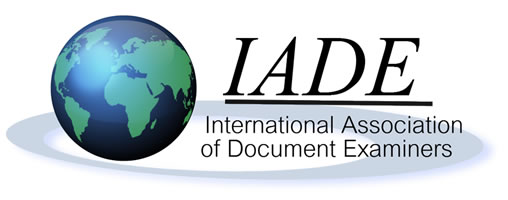Seventh Annual Interactive Seminar and Workshop Webinar — 2021
September 13-15, 2021
Our 2021 webinar was held over three days for 4 hours each day. There was great participation with 40 participants. Each day, we offered discussion groups before the day's presentations where general discussion was offered in one room and a specific topic of discussion in the other room. Go to the "Webinar Program" tab above to see the topics presented.
Select the "Speakers" tab above to learn more about this year's webinar speakers and presenters.
Speakers
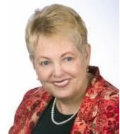
Katherine Koppenhaver
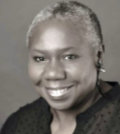
Beverley East
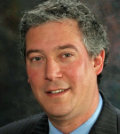
Doug Carner
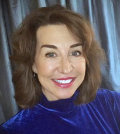
Brenda Anderson
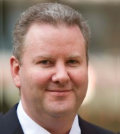
Darren Hayes
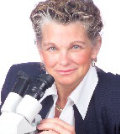
Sharon R. Hampton
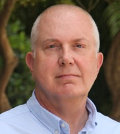
Max Houck
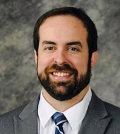
Bruce Burk
About the Speakers — 2021 Webinar
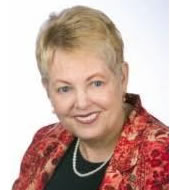 Katherine Koppenhaver
Katherine Koppenhaver
Katherine Koppenhaver has been a document examiner for the past 36 years. She has an international business. She has served as President of the National Association of Document Examiners and is Founder and President of the International Association of Document Examiners.
She has testified in court and deposition over 550 times and has handled over 3500 cases. She has lectured at 90 seminars. She has written a course, teaches it on a weekly basis, and has trained several hundred people. She is the author of several books including Forensic Document Examination: Principles and Practice
 Beverley East
Beverley East
Beverley East, MGA, CAM, CFDE, is a court qualified Forensic Document Examiner who has practiced in the field for 32 years internationally. She has testified before 36 judges in 6 countries. She has offices in Washington D.C., Kingston Jamaica, and London England.
Ms. East hosts in-house training for bankers through the Jamaican Institute of Financial Services and accredited seminars for lawyers through the General Legal Counsel. Her consultancy provides services to many government agencies.
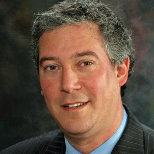 Doug Carner
Doug Carner
Doug Carner is a certified as an Audio Video Forensic Analyst that has processed evidence in thousands of cases worldwide, spanning from murders to espionage. Mr. Carner is also a certified Forensic Hi-Tech Investi-gator, Computer Forensics Examiner, certified Protection Professional, and serves on the Los Angeles Superior Court Panel of Experts. Want to learn more, just ask your smart phone, "Who is Doug Carner?"
 Brenda Anderson
Brenda Anderson
Brenda Anderson grew up in Montana, was a personal trainer for Joan Rivers, and is a Certified Clinical Hypnotherapist. She joined with a partner in a small advertising agency called Agency 72 and published an arts and entertainment magazine called Daydream Magazine. After she married her business partner, the agency evolved into Anderson Renderings architectural graphics, which is still alive and well. In 2007, she began training as a Forensic Document Examiner with Kathie Koppenhaver as her teacher and mentor. She a Certified member of IADE and was approved as a Law Enforcement training instructor in 2018.
 Darren Hayes
Darren Hayes
Darren Hayes, PhD, is a leading expert in the field of digital forensics, intelligence, cyber security and IT risk management. He is the Founder and Director of the Pace University Digital Forensics Research Lab. He is also an Associate Professor at Pace in New York. Hayes is listed as one of the Top 10 Computer Forensics Professors, by Forensics Colleges. He continually conducts research, with his students, in support of law enforcement agencies both domestically and internationally. His partnerships have included the New York Police Department, Federal Bureau of Investigation, Department of Homeland Security, National Crime Agency, Manhattan District Attorney and Westchester District Attorney.
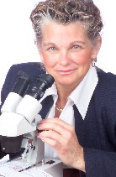 Sharon Hampton
Sharon Hampton
Sharon has been a practicing document examiner since 2005. And if practice makes perfect, she must be improving her skills, as crime has not taken a break. In her advancing age toward retirement, she appreciates the opportunity to share her experience. The field of document examination still has much to teach us, as technology and the criminal mind continues to advance. Her presentation is proof of the advancements in altering and creating documents.
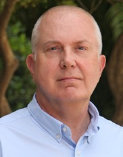 Max Houck
Max Houck
An international expert in the forensic sciences, Max M. Houck, PhD, has nearly 30 years of expertise in casework, research, management, and writing. His casework includes the Branch Davidian Investigation, the September 11 attacks on the Pentagon, the D.B. Cooper case, and the West Memphis Three, among hundreds of others including his casework at the FBI Laboratory. He is Editor-in-Chief of Forensic Science International: Synergy, the first Gold Open Access journal in the discipline. Dr. Houck is also Editor-in-Chief of the third edition of The Encyclopedia of Forensic Sciences. Dr. Houck is a Fellow of the Royal Society of Chemistry, a full member of Sigma Xi, and a retired member of the American Society of Crime Laboratory Directors. He is currently the Forensic Portfolio Innovator at the Global Forensic and Justice Center at Florida International University.
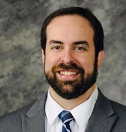 Bruce Burk
Bruce Burk
As a Partner with his law firm Abbey Adams Byelick & Meuller, LLP, Bruce D. Burk, Esquire, represents employers, carriers, self-insureds and organizations in Workers' Compensation matters. He earned his J.D. from the University of South Carolina, School of Law in 2015 and maintains professional affiliations in the Florida Bar, Workers' Compensation Section, Hillsborough County Bar Association, and the Florida Hispanic Bar Association. He is an Adjunct Professor teaching business law at Palm Beach Atlantic University.
Seminar and Workshop Webinar Program
September 13-15, 2021
Select date below to view program details and the topics discussed.
Hello and Breakout Sessions
Time
PDT: 8:15am – 8:50am
MDT: 9:15am – 9:50am
CDT: 10:15am – 10:50am
EDT: 11:15am – 11:50am
Room #1
General chit chat with fellow examiners. No moderator.
Room #2
Tough trial questions.
If you have been asked trial questions and would like options on how to answer such questions; bring them to this breakout room.
Session 1 — Principles of Handwriting Identification
Presented by Kathie Koppenhaver (see Speakers tab above to view bio)
PDT: 9am - 10am
MDT: 10am - 11am
CDT: 11am - 12pm
EDT: 12pm - 1pm
Document examiners discuss if handwriting identification is an art, a skill, or a science. This lecture will provide the principles of handwriting identification that support and prove that handwriting identification is a science. Science on any subject includes a body of rules to be followed and handwriting analysts follow these rules to solve cases.
Session 2 — Illegible Signatures and the Relevance of Movement
Presented by Beverly East, MGA, SAM, CFDE (see Speakers tab above to view bio)
PDT: 10am - 11am
MDT: 11am - 12pm
CDT: 12pm - 1pm
EDT: 1pm - 2pm
As experienced examiners, we are aware that many people sign with just a scribble.
Does this make our jobs easier or harder? I believe after many years of examining we may sometimes skip the basic principles of examining, as our trained eyes go to the obvious inconsistencies.
I believe while the illegible signature can be challenging it brings us back to the fundamental principles of examination: movement and form.
I will demonstrate some of the cases from both the Caribbean and the US, and also a recent case for group study. As we have been immobile for almost two years let's island hop through the movement of illegible signatures.
This presentation is an excerpt from my new book Whose signature is it Anyway? Complexities of Caribbean Fraud"to be released 21.8.21.
30-MINUTE BREAK
Session 3 — A Guide to Authenticating Digital Documents
Presented by Darren Hayes (see Speakers tab above to view bio)
PDT: 11:30am - 12:30pm
MDT: 12:30pm - 1:30pm
CDT: 1:30am – 2:30pm
EDT: 2:30pm - 3:30pm
This presentation will provide an overview of authenticating various digital files. In particular, we will explore ways in which some file metadata, including timestamps and authorship, can be spoofed, while other metadata can be used to authenticate documents. We will talk about methods used to link digital documents to the original owner or computer. You will also discover how to authenticate emails so that they are admissible in court. We will also discuss relevant case law related to the admissibility of digital documents.
Session 4 — Identifying False Knowns Hidden in Plain Sight (or aka/ How to unscramble an egg!)
Presented by Sharon R. Hampton (see Speakers tab above to view bio)
PDT: 12:30pm – 1:30pm
MDT: 1:30pm – 2:30pm
CDT: 2:30pm – 3:30pm
EDT: 3:30pm – 4:30pm
Meat and Potatoes of Topic: More and more forensic sciences are getting TV exposure on every channel! The secret of how a crime is detected is no longer a secret. As with all knowledge, it can be used for good or evil. Those who would benefit from inside knowledge have paid attention to our techniques for determining a signature genuine or forged, disguised or manipulated, or even one imitating an infirmed patient or person close to death. And, paying attention is paying off pretty well. In this presentation will be false documents that have been presented as knowns, including a passport and other government identification documents, pages from a handwritten journal, original "course of business" correspondence, employment documents from employer, and 17 recorded warranty deeds from the county courthouse. This is just a sampling in the last 5 months!
Hello and Breakout Sessions
Time
PDT: 8:15am – 8:50am
MDT: 9:15am – 9:50am
CDT: 10:15am – 10:50am
EDT: 11:15am – 11:50am
Room #1
General chit chat with fellow examiners. No moderator.
Room #2
Discussion about billing structure and acceptable fees.
If you have questions about your billing and fees or you have insight and suggestions for others, join this open discussion
Session 1 — Authenticating Signatures in PDF Documents
Presented by Doug Carner (see Speakers tab above to view bio)
PDT: 9am - 10am
MDT: 10am - 11am
CDT: 11am - 12pm
EDT: 12pm - 1pm
It is becoming prevalent for signed documents to exist in an electronic format. The resulting degradation caused by file compression can make signature authenticity much more challenging. This lecture dives into what occurs when wet signatures are scanned into a PDF, how to decipher the meaning behind scanner effects (e.g. color shifts and noise artifacts), and how to detect document manipulations. In-lecture examples will include these topics and much more.
Session 2 — Instructional Graphics for Document Examiners
Presented by Brenda Anderson (see Speakers tab above to view bio)
PDT: 10am - 11am
MDT: 11am - 12pm
CDT: 12pm - 1pm
EDT: 1pm - 2pm
Exhibits as demonstrative evidence in any document examination case are vital. The old adage "A picture is worth a thousand words" is appropriate whether writing a report or going to trial. This lecture will inspire and help you in creating report and courtroom graphics that accurately and easily demonstrate your case.
30-MINUTE BREAK
Session 3 — Beyond Handwriting: What Can We Agree Upon?
Presented by Erich Speckin and Anthony Milone
PDT: 11:30am - 1:30pm
MDT: 12:30pm - 2:30pm
CDT: 1:30am – 3:30pm
EDT: 2:30pm - 4:30pm
More information to come.
Hello and Breakout Sessions
Time
PDT: 8:15am – 8:50am
MDT: 9:15am – 9:50am
CDT: 10:15am – 10:50am
EDT: 11:15am – 11:50am
Room #1
General chit chat with fellow examiners. No moderator.
Room #2
.
More information to come.
Session 1 — Forensic Mindset
Presented by Dr. Max M. Houck (see Speakers tab above to view bio)
PDT: 9am - 10am
MDT: 10am - 11am
CDT: 11am - 12pm
EDT: 12pm - 1pm
Forensic science is more than "science applied to justice," more than a collection of methods applied to criminal investigations. Forensic science is the study of the relationship between people, places, and things involved in past criminal activity and it aims to reconstruct those events. With a philosophy and mindset unique to the discipline, forensic science nevertheless shares many of its fundamental principles with other historical sciences, like geology and archaeology. The "forensic mindset" is a very old, very human set of activities that have been honed by science. This talk discusses the underlying principles of how forensic science works and how its methods are linked to some of the earliest forms of human thinking and how it "makes the absent present" by reconstructing past criminal events.
Session 2 — Report Writing
Presented by Beth Chrisman (see Speakers tab above to view bio)
PDT: 10am - 11am
MDT: 11am - 12pm
CDT: 12pm - 1pm
EDT: 1pm - 2pm
More information to come.
30-MINUTE BREAK
Session 3 —
Presented by Brett Goldstein (see Speakers tab above to view bio)
PDT: 11:30am - 12:30pm
MDT: 12:30pm - 1:30pm
CDT: 1:30am – 2:30pm
EDT: 2:30pm - 3:30pm
More information to come.
Session 4 — How to Qualify as an Expert Witness
Presented by Bruce D. Burk (see Speakers tab above to view bio)
PDT: 12:30am – 1:30am
MDT: 1:30am – 2:30pm
CDT: 2:30pm - 3:30pm
EDT: 3:30pm - 4:30pm
Expert witnesses are necessary in a courtroom to establish testimony of specialized knowledge that a layperson cannot establish. One of the most important aspects of working with an expert witness in litigation is making sure that your expert gets properly qualified to testify in court through the voir dire process. This presentation will jumpstart your expert qualification process with tips and helpful ways to communicate with your attorney to assist in the qualifying process.
